
What happens when a country not considered a mining powerhouse discovers an ore deposit worth close to $13tn? In the case of a vast 31 million tonne gold orebody in Uganda, the answer appears to be simple: sell the mining rights to a Chinese company, and hope new mining legislation delivers benefits for both the foreign investors and the local workers.
Of course, the question remains as to whether this will work in practice, and the discovery and working of the deposit could function as a high-profile proving ground for Ugandan mining law, with potentially industry-changing money on the table. The discovery also raises old questions about the role of foreign investors in mining projects, with concerns abound that the mine will deliver returns for the Wagagai Gold Mining Company, but not necessarily the Ugandan miners working in the mine, nor local people who live in the area around the facility. Only time will tell if this deposit delivers as much has been promised, and where these vast sums of money will ultimately end up.
Elsewhere, we look into the latest developments in Russian mining, as international sanctions push the biggest companies towards mergers and co-operation, and ask how the sector’s constant drive for profits could affect local communities the most directly impacted by mining operations. We also look at the latest in deep-sea mining, and profile a joint venture in South Africa that looks to bring together miners and communications experts to build the world’s first 5G mine.
Whether you are on a desktop, tablet or smartphone, you can read the magazine for free online, and join the conversation on Twitter.
In this issue
The $13tn question: Will Uganda’s newest gold deposit change the face of mining?
New gold discoveries valued at close to $13tn in Uganda are set to “make waves in the global market”. Heidi Vella finds out more.

US Tariffs are shifting - will you react or anticipate?
Don’t let policy changes catch you off guard. Stay proactive with real-time data and expert analysis.
By GlobalData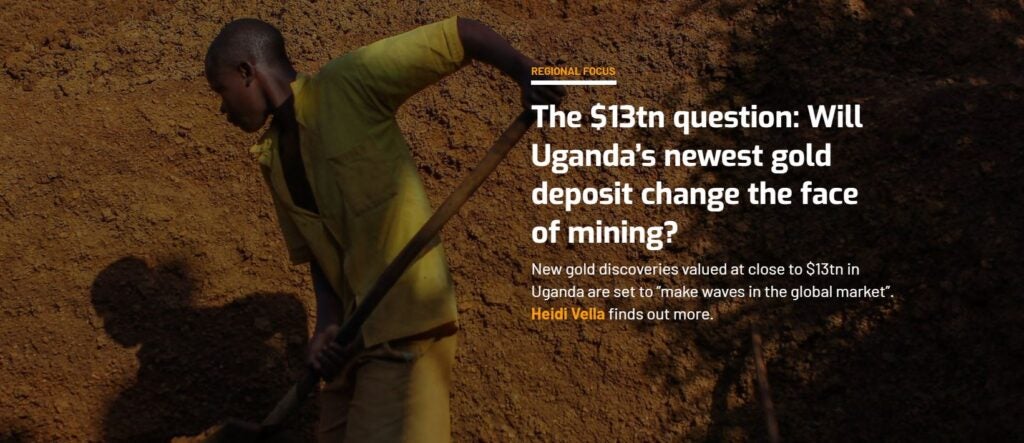
Wealth in the water: the face-off over deep-sea mining in Oceania
The deepest oceans remain untouched, for now, by large-scale industrial development. Giles Crosse investigates how that could be about to change.
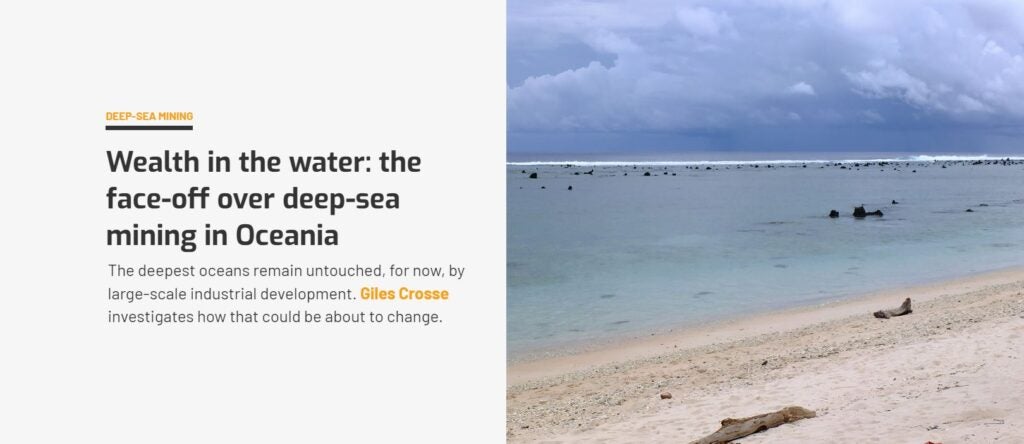
Brute force: could Russian mining mergers counter Western sanctions?
In response to Western sanctions, Russian miners have looked towards merging to create companies strong enough to resist economic penalties. Nnamdi Anyadike investigates.
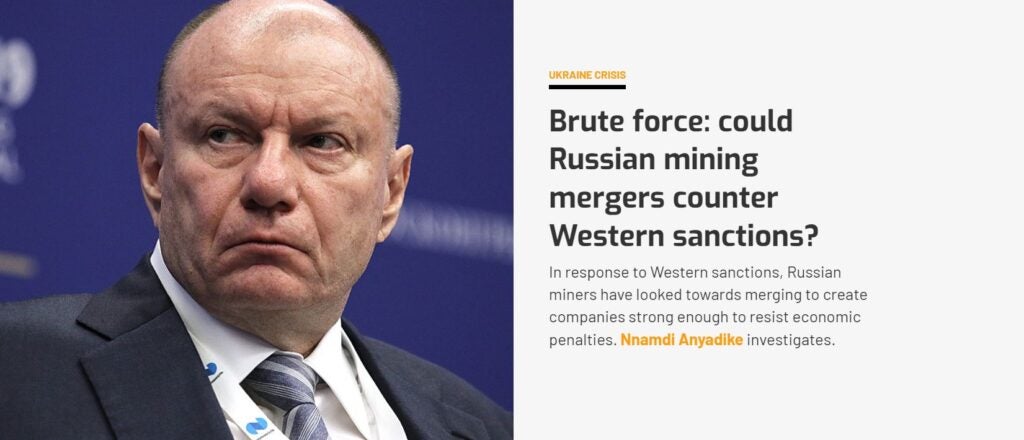
A new wave: inside Zijin’s hyperconnected mine
The Chinese mining colossus, Zijin, has joined forces with global technology giant and corporate compatriot, Huawei, and Africa’s premium telecoms network provider, MTN. Dominic Hale considers their plan, to build a 5G-enabled platinum mine in South Africa.
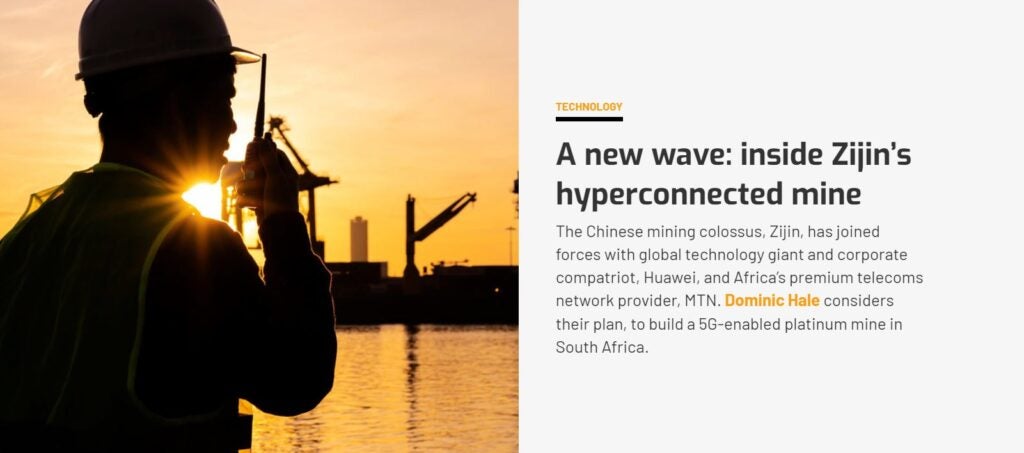
Mining profits rise during the pandemic, while communities are left behind
Isabeau Van Halm investigates a report, which concludes that while mining companies made extraordinary profits during the pandemic, communities local to the mines faced additional challenges.
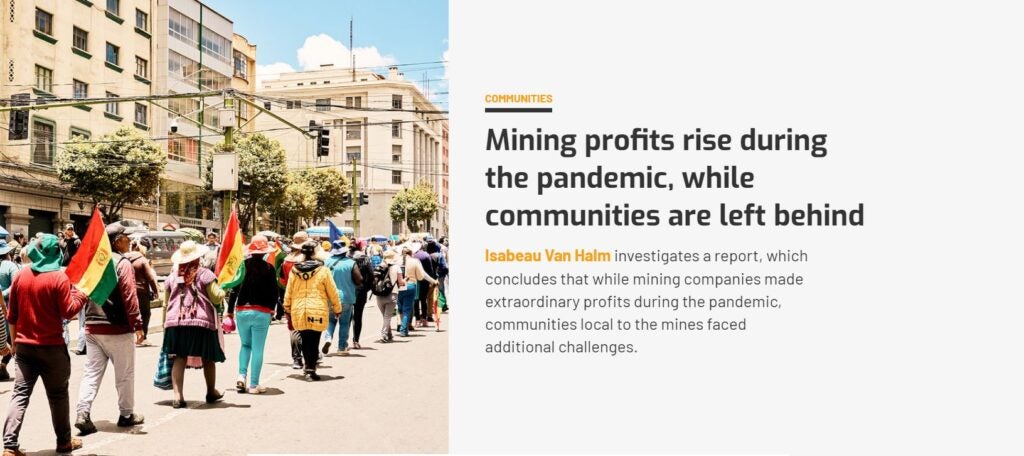
Next issue: energy colonialism
Mining is particularly vulnerable to energy colonialism, due to the fact that the location of mineral deposits is fixed, and does not conform to national borders that define the world’s haves and have-nots. With this in mind, can communities around mineral deposits ever be free from the influence of foreign powers, and how can actors across the sector balance this skewed power dynamic?



